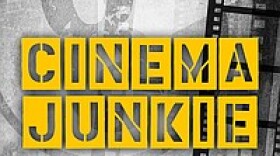In 1968, ABC News was trailing miserably in the ratings and to offset its inability to provide gavel-to-gavel coverage of the Republican and Democratic conventions it came up with the idea of offering a series of debates between William F. Buckley and Gore Vidal.
The new documentary, "Best of Enemies" (opening Aug. 21 at Landmark's Ken Cinema) focuses on these debates.
"Best of Enemies," by Robert Gordon and Morgan Neville, looks to the 10 debates between these two passionately articulate men who were political and ideological opposites.
The film uses the debates as a jumping off point for not only examining the lives of these two men but also for looking at how this moment laid the groundwork for the divisive political debates now found on television.
Wait, calling what you find on TV now as debate, or even dialogue, elevates it because it is often more a screaming match or name calling session. Ironically, some of the most intelligent discussion of ideas has not been found these days on TV news but rather on shows labeled as entertainment, rather than news shows such as "The Daily Show" and "Last Week Tonight with John Oliver."
But back in 1968, TV was a different beast and American audiences were willing to embrace a pair of white males who took delight in asserting their moral and academic superiority. These men sounded like the kind of intellectuals that mainstream America was supposed to hate. But the American public enjoyed watching these two men spar so much that it lifted ABC out of the ratings basement.
And this goes to why the debates were so much fun to watch: These men despite their distaste for each other’s politics, were articulate, clever, and witty.
Howard K. Smith at one point introduces them as craftsmen of the English language who knew how it should be used. The film also suggests that these men understood the power of television and relished being on camera and often literally addressing the camera in order to connect with the audience. They also understood that the debate was less about specific topical events like Vietnam and more about issues that still push people’s buttons like racism, classism and sexual morality.
At the time, both men felt a need to score a victory and feed their egos. Both had suffered defeats in their attempts to run for political office, but both had proven successful in other fields: Buckley as the host of the right-wing talk show Firing Line, and Vidal as the author of best-selling books like "Myra Breckenridge."
They were primed for battle.
The film builds to the infamous moment on live TV where the usually in control Buckley let Vidal unsettle him during the debate during the Chicago Democratic convention after police faced off against protesters. Vidal labels Buckley as a "crypto-Nazi" and Buckley fires back by saying, "Now listen you queer, quit calling me a crypto-Nazi or I'll sock you in the goddamned face."
"Best Of Enemies" presents this as a pivotal moment. The first time the clip is played, there is a moment of silence and then Dick Cavett – interviewed for the film – says, “The network nearly shat.” On air, Howard K. Smith closes the debate with the comment that the evening provides “a little more heat and a little less light” than usual.
The documentary shows the exchange multiple times, and seeks reactions from people who knew each man. And the point the filmmaker wants to make is that this was not just a pivotal moment for the debates, but also for the two men and for TV news.
So much of what Buckley and Vidal did in their careers leading up to this and on the debates was about elevating the public discussion and educating people but its those 10 seconds when Buckley lost his composure that television took away as what they wanted to emulate.
Vidal saw it as a moment of victory, Buckley was embarrassed that he had been ruffled to the point of losing his temper and losing the moral high ground. And TV news caught a glimpse of its ratings future and started programming the kind of left-versus-right circus shows where the combatants spend more time insulting each other than discussing ideas or finding common ground for compromise.
"Best of Enemies" is fascinating in terms of the archival footage and the interviews with such people as Dick Cavett, Christopher Hitchens, Reid Buckley, and more. It’s not innovative filmmaking but the directing duo know how to spin an entertaining, enlightening, and sometimes unsettling narrative. What’s sad is that so much of the debates between these two men showed how good and riveting television could be, but the 10 seconds where they lowered themselves to mere name calling seems to be the legacy that has been left behind.
"Best of Enemies," at its best though, reminds us how thrilling and provocative an intelligent debate can be.



